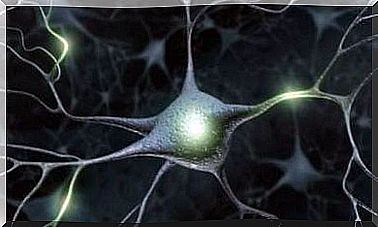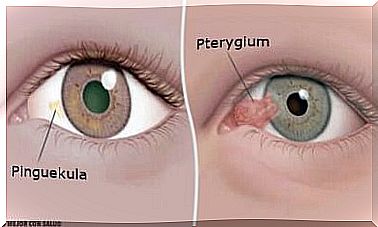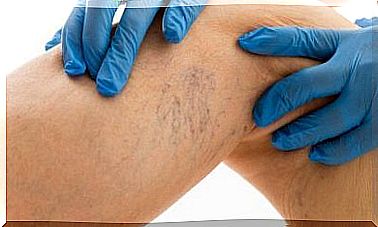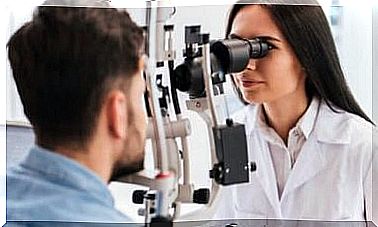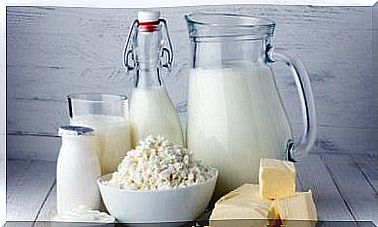Gastroesophageal Reflux: Symptoms And Treatment

Gastroesophageal reflux disease, or GERD ( Gastroesophageal Reflux Disease) for short, means that the contents of the stomach enter the esophagus spontaneously and for no apparent reason. Physiological esophageal reflux is primarily due to transient and spontaneous relaxation of the lower esophageal sphincter due to stomach stretching.
Gastroesophageal reflux clearly affects the quality of life of people who suffer from it. However, for it to be considered a pathology, the symptoms must be sufficiently significant in terms of either their presence or their intensity.
Therefore, gastroesophageal reflux is a reflux disease that develops into a chronic disease, but fortunately it has a good prognosis. Also, the intensity of symptoms of gastroesophageal reflux varies from patient to patient and remissions of the disease occur from time to time.
Causes of gastroesophageal reflux

Gastroesophageal reflux is manifested by a disorder of the abnormal function of the esophageal sphincter, which is responsible for regulating the flow of acidic fluids.
The onset of the disease depends on many different factors. However, the most important of these factors is lower esophageal sphincter dysfunction. In addition, other factors that favor the development of gastroesophageal reflux include:
- Esophageal mobility.
- Upper esophageal sphincter.
- Esophageal clearing mechanisms and abdominal contents.
In many cases, diaphragmatic hernia has also been associated with gastroesophageal reflux. This is because the diaphragm favors reflux.
Symptoms of gastroesophageal reflux
Gastroesophageal reflux causes a patient to have several different symptoms. The severity of symptoms can range from the mere occurrence of symptoms to concomitant and varying degrees of esophagitis, or esophagitis.
Only in rare cases can gastroesophageal reflux lead to complications such as esophageal stenosis, esophageal ulcers or Barrett’s esophagus.
The variability in symptoms depends on a number of different factors, such as the duration of periods of gastroesophageal reflux and the amount and aggressiveness of the contents transferred from the stomach to the esophagus.
In addition, the contact time of the contents transferred from the stomach to the esophagus with the esophageal mucosa must be taken into account. The most common of these symptoms are:
- Heartburn: Heartburn is a fairly typical symptom of this disease. Heartburn can be felt as a burning and rising sensation in the esophagus and chest area.
- Acid belching: Acid belching is the second most common symptom of the disease after heartburn. They are formed when the contents of the stomach begin to migrate spontaneously toward the mouth. Certain postures or increased abdominal pressure may also favor their occurrence.
- Chest pain: Chest pain occurs acutely and suddenly due to esophageal spasms. In case the pain is related to eating and not other effort, the possibility of gastroesophageal reflux may be suspected.
- Dysphagia: In dysphagia, the patient may notice difficulty swallowing.
- Odinophagia: In odinophagia, ingestion causes pain and is not a common symptom of gastroesophageal reflux. But in cases where this symptom occurs, it may possibly also refer to esophagitis, or inflammation of the esophagus.
Typical symptoms of gastroesophageal reflux have high diagnostic reliability. Diagnosis can be made with relative certainty by their simple presence, so that the physician can also prescribe treatment without the need for additional diagnostic tests to diagnose the disease, such as endoscopy.
However, if a patient develops alarming symptoms or does not respond adequately to standard care, it is important to perform upper gastrointestinal endoscopy in these cases.
Treatment of symptoms of gastroesophageal reflux
Treatment of gastroesophageal reflux aims to both relieve symptoms and improve possible esophagitis. In addition, the purpose of treatment is both to cure and prevent possible complications.
Treatments for gastroesophageal reflux include lifestyle changes, hygiene and dietary measures, and medications, and in some cases, surgical procedures.
Hygiene and dietary measures

Guidelines for lifestyle, hygiene and dietary measures should be individual to each patient and should be determined in each case according to the patient’s risk factors. The patient’s clinical response to the changes should also be considered.
In addition, it is recommended to quit smoking and reduce alcohol consumption. Weight loss is also highly recommended for overweight or obese patients.
In addition, it is recommended that:
- Avoid high doses and eat less at once, but more often throughout the day.
- Identify and avoid foods that trigger symptoms.
- Manage stress.
- Avoid extremely hard and strenuous exercise.
- Make sure the food is chewed properly before swallowing.
Medicines
Pharmacological treatment is based on the prevention or neutralization of gastric acid secretion. Proton pump inhibitors are among the most common drugs used to treat gastroesophageal reflux.
These drugs completely prevent the secretion of stomach contents. They also relieve the symptoms of the disease, treat inflammation of the esophagus and control the possible recurrence of the disease.
In addition, gastric acid neutralizing agents, or antacids, are also used to treat gastroesophageal reflux . Antacids, also known as acid drugs, effectively and quickly relieve the unpleasant sensation caused by heartburn. In the case of acid reflux, on the other hand, prokinetic drugs are useful alternatives.
On the other hand, H2 blockers also help to partially prevent the secretion of gastric contents. It can be used to treat gastroesophageal reflux when the patient does not suffer from esophagitis.
Does this disease affect you as well? As you can see, there are several different factors that can both cause and worsen the disease. Fortunately, several different alternatives and methods for the management and treatment of gastroesophageal reflux have been found over the years.


